I dedicate this material to my friend,
a talented Ukrainian architect - Lesya Fomenkova.
When we envision the future, the cities of the future, and the homes of the future, our imagination often paints skyscrapers piercing the sky.
Structures made of steel, glass, and concrete. Cold and orderly rows disappearing into the urban haze on the horizon of the metropolis.
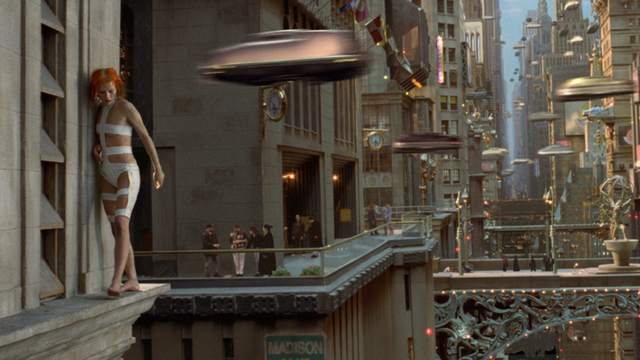
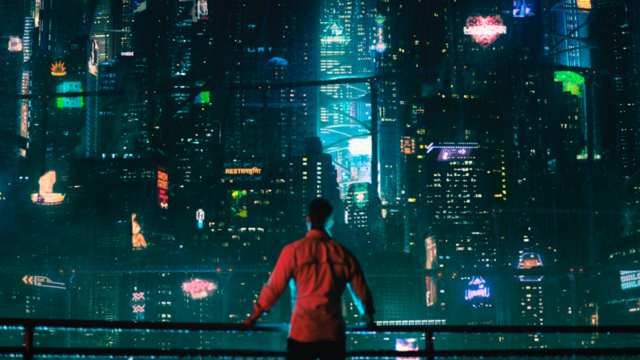
There are architects who do not share such a view of the future. They engage in a dialogue with the living nature. They tame nature in order to create homes that blend with the world of plants and allow humans to feel harmony and comfort.
One of such architects is Elora Hardy, the daughter of the well-known architect John Hardy in Bali, and the creative director of the Ibuku agency, which works with bamboo. "Ibuku" translates from Indonesian as "my mother" and, in Elora's opinion, represents Mother Earth.
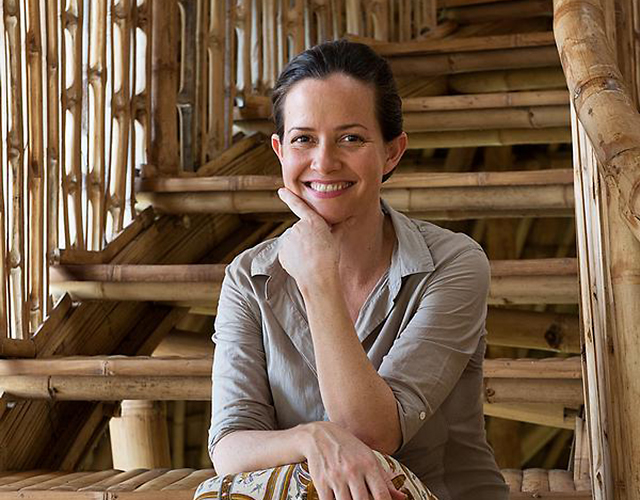
Her creative playground is Green Village in Ubud. It houses one of the most unique schools not only in Bali but probably in the world - Green School, along with more than a dozen bamboo buildings. At first glance, this village appears to have come straight out of the pages of fairy tale books.
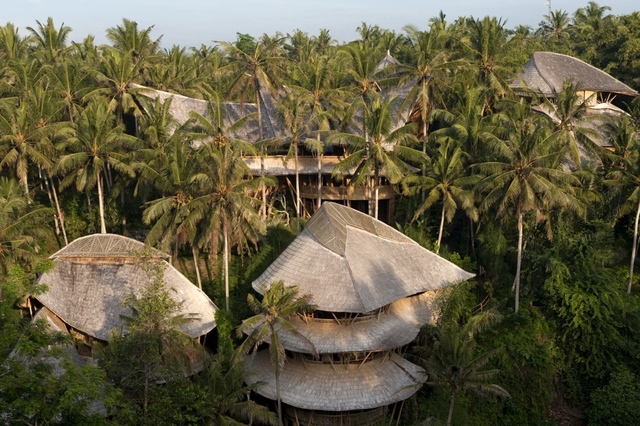
Elora grew up in Bali, lived in the USA for 14 years studying art and working on designs for designer Donna Karan. In 2010, Elora moved back to Bali and founded the design and architecture agency Ibuku.
Since then, she and her team of architects, engineers, and interior designers have created over 60 bamboo structures in Asia.
Among them are private homes, a yoga pavilion at the Four Seasons hotel, the Tri restaurant in Hong Kong, the Como Marketplace in Singapore, and several open cottages for the Bambu Indah hotel, which was founded by her father and his spouse, Cynthia.
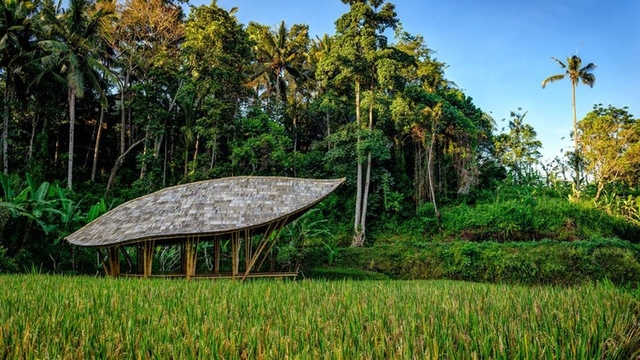
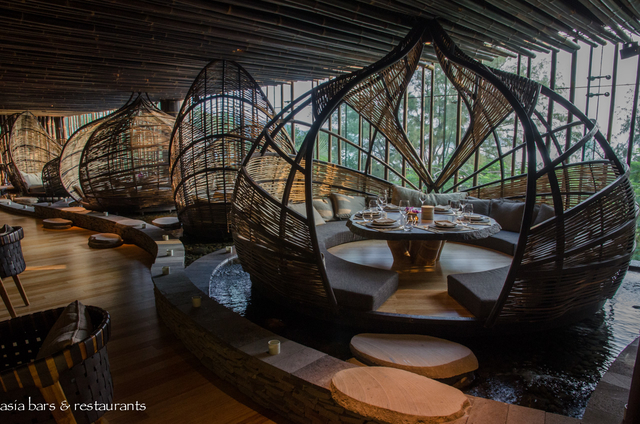
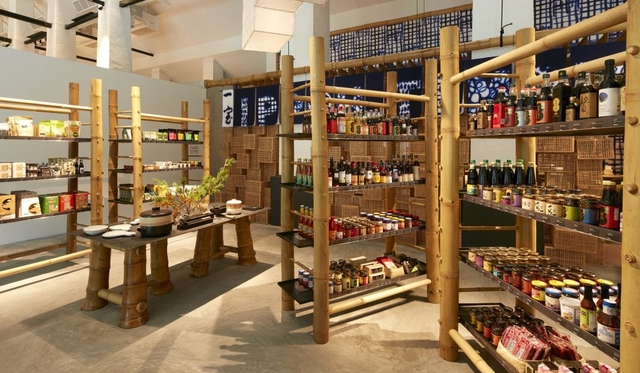
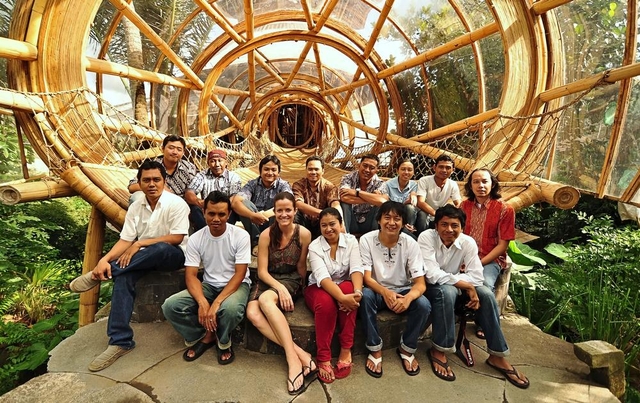
"Bamboo is incredibly versatile. It can be a supporting actor, shaping the character of the space being created. But it can also be light and ethereal, like a nest or cocoon around you. As if it wasn't deliberately built or designed, but grew on its own," says Elora.
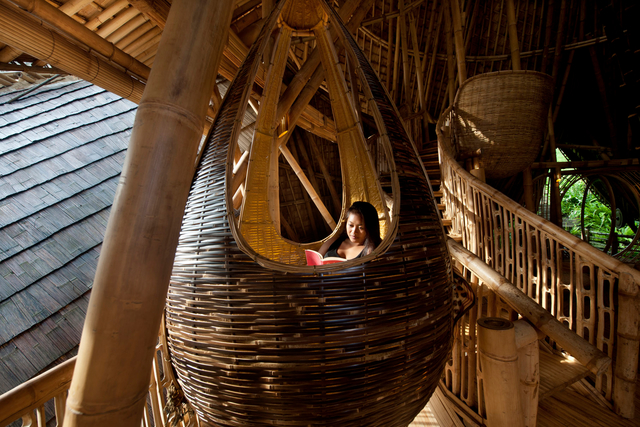
"We try to listen to the bamboo, understand how it can be used, grasp its unique characteristics."
Using bamboo presents challenges to architects. It has been used for thousands of years in construction. But if left without proper care, it became prey to insects and decayed.

To preserve bamboo, Ibuku treats it with borax – a natural salt.
Bamboo is hollow and does not tolerate 90-degree angles. Therefore, Ibuku's architecture is characterized by curved and smooth lines. Doors are sometimes fixed on a central axis instead of swinging to one side as we are accustomed to.
Since it's crucial for bamboo to stay dry, custom-made copper showers and stone sinks are installed in bathrooms. The buildings also incorporate electrical and air conditioning systems.
Furniture for such houses is also made from bamboo and other natural materials.
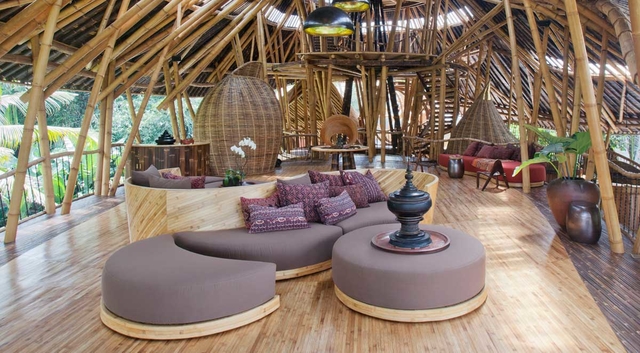
One of the biggest advantages of bamboo and the reason it could become a material of the future is its alignment with the concept of sustainable development.
Technically, bamboo is a wild grass. It's hardy and grows rapidly. It can withstand strong loads, is flexible, and resistant to earthquakes. It has good ventilation properties and maintains temperature well.
For Elora, the key quality of bamboo is its ability to connect people with nature.
"I ask my clients whether they want to live in a bunker that is impervious to any external influences, or if they want to feel the breeze, see butterflies fluttering in the bathroom," she says.
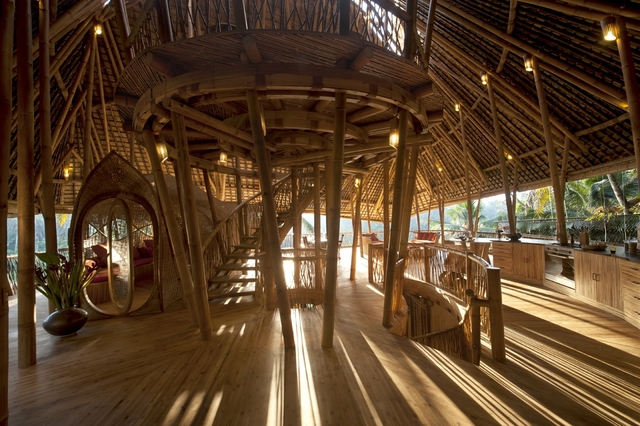
In a time when people strive to gain full control over the temperature in their homes, Elora encourages them to loosen their grip and harmonize more with nature.
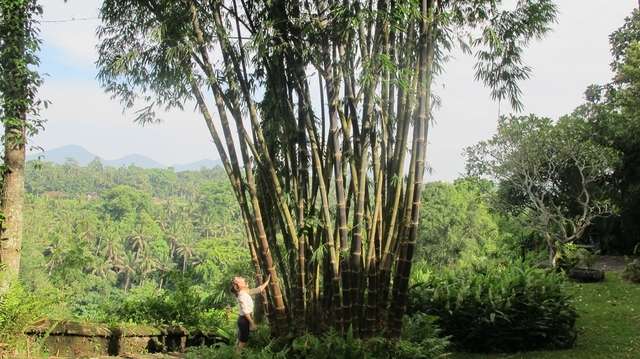
"People need nature, a sense of being a part of it, and an understanding of their connection to it. And if I can create a building that resembles a beautiful forest and a bedroom like a comfortable cocoon, I feel like I'm helping people connect with something essential to them."
You can add one right now!